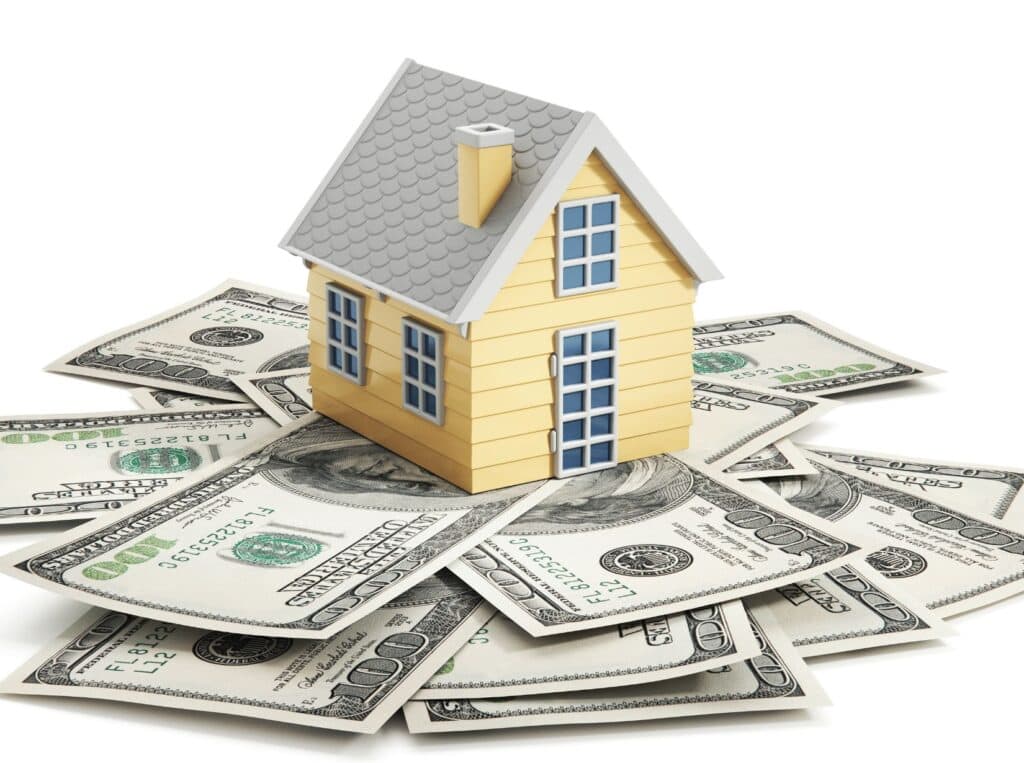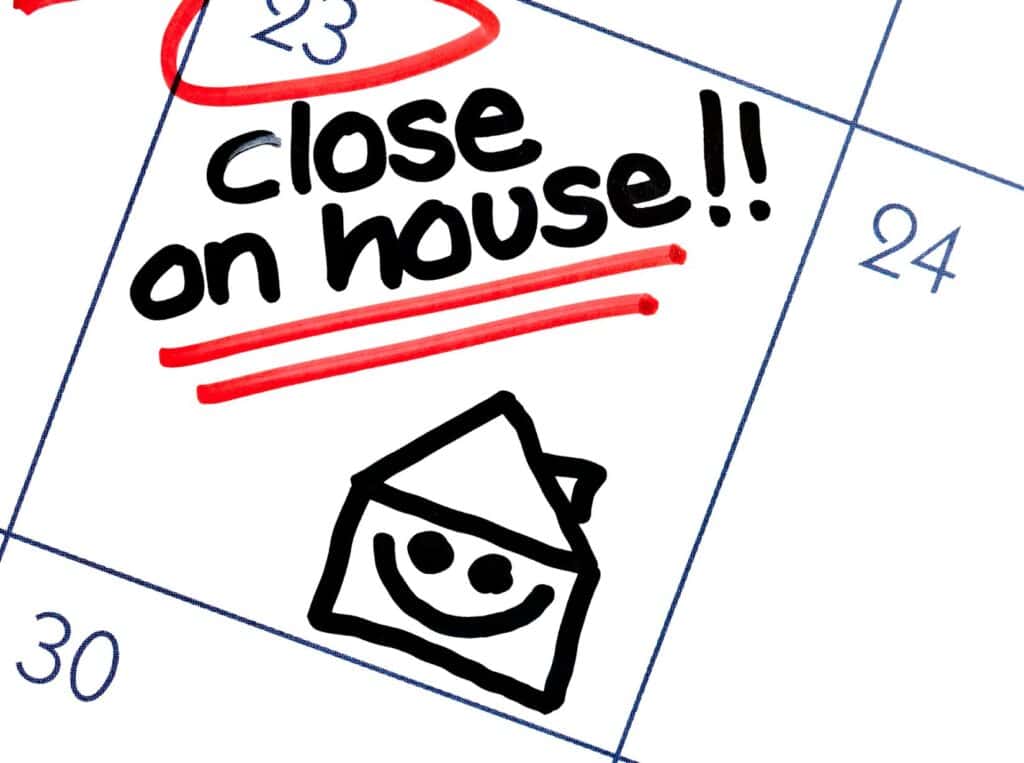
When I bought my first home, I was so excited! (a little nervous as well).
One of the reasons I was so excited was that I saved up ten long years for a big down payment, which put my monthly payments well within my comfort range at around $1,100 a month.
My wife and I put down $100,000 on a $286,000 home.
I was stoked!
The signing of the papers was going awesome.
The realtor and other professionals at the signing were polite; it was almost time to get the keys!
“Here’s the amortization schedule, Charles,” said the Realtor.
Amori-tuh-what?
“Yeah, it’s the document that shows you how much you will pay over the 30-year mortgage.”
This is where my young 20-something-year-old self failed.
I GROSSLY misunderstood interest.
I thought I would pay 4% on the $286,000, which would have been about $11,500.
But when I saw that, I almost number two’d myself.
Over the next 30 years, I would not be paying into the principal until year 15!
Even worse, at the end of the 30-years, I would have paid over $500,000 for a $286,000 home!
What a f’ng scam!
So, my friends, I want to help you avoid the mortgage company from taking advantage of you.
Today, I will show you how to pay off a mortgage early.
We are about to go over the steps my wife and I followed, which allowed us to pay off our home in full within three months of getting the keys.
So, if you’re interested in learning how to write a detailed financial game plan, what specific questions to include during your home-buying process, which side hustles to pursue extra cash and much more, this is a must-read.
Now, let’s go get that mortgage paid off.
How to Pay Off a 30-Year Mortgage In 5-7 Years

On Saturday, January 20, 2024, the national average 30-year fixed mortgage APR is 7.05%.”
-Bankrate
That means if you took out a $300,000 loan, you would pay over $400,000 in interest alone.
With the amount you paid in interest alone, you could have purchased two homes and a couple of vehicles!
Okay, I can get riled up about interest for hours, but let’s get to the meat and potatoes.
This guide will be broken down into two parts:
- Before You Buy
- After You Buy
If you came here and you’re one of the lucky folks who haven’t purchased yet, if you follow all of these tips, you will pay your home off within five to seven years, or maybe even a few months, like me.
If you come here “After You Buy,” you’ll still get many good tips to help you expedite this process.
This isn’t like any of those other articles you Google to give you mortgage tips.
This is real-life stuff from someone at a point financially qualified for food stamps during his home-buying journey.
So even though every category might not be specifically molded to your situation, keep your ears open because there are little nuggets of financial advice gold that you can take and apply to your current state.
Let’s dive into it.
Before You Buy

The home-buying journey needs to start as a child.
It can be as early as grade school, in my opinion.
Because if you were like me when you bought your first home, you were not fully prepared for what you would get into.
I did MONTHS of in-depth research before buying a home and still missed some key items.
But in a more realistic situation, you must get educated from age 20.
That way, you would be basically guaranteed to pay off your mortgage early.
Let’s pretend you want to buy a home in 10 years for this learning scenario.
This is what you should do.
Before You Buy Tip #1: Write Out a Basic Home-Buying Financial Picture
You’re ten years out from buying a home.
The first step is to write a basic picture of your financial situation.
It should include:
- Your Projected Income for The Next 10 Years: You want to lowball here. It’s better to underestimate than over. For example, you say, “For the next ten years, I will average $50,000 annual gross income.”
- Your Projected Expenses: You want to aim for a 50% savings rate (we’ll discuss strategies later). So, you should pocket $25,000 of that $50,000 for ten years.
- The Estimate Price of Your Future Home: You want a $300,000 home. Focus on that number for the next ten years.
- Get The Every Dollar App: This free app has an optional paid version that lets you track every dollar and set goals to follow. This will aid you on your journey.
That’s the very first thing you have to do.
It’s not rocket science.
You need to take it one day at a time.
Before You Buy Tip #2: Save 50% of Your Paycheck
“50% of my paycheck, that’s impossible, Charles!”
No, it’s not.
I do it with a family of four.
Here are some tips that will help you reach that high savings rate:
- Practice Gratefulness: If you are happy with what you have, you will spend and spend and spend. Buy the book The Mood Cure. This will drastically tame your emotional spending.
- Learn to Say No: This takes daily practice. Get a notepad; whenever someone asks you to go out to lunch or the movies, say, “No thanks.” Offer a cheaper alternative like Netflix or homemade pizza. Write down your success. After about 21 days in a row of doing this, you will start to build a subconscious NO THANKYOU money-saving habit.
- Walk 10,000 Steps a Day: If you walk 10,000 Steps a day, you will spend less money because when you walk, you get a dopamine boost, maybe a little serotonin, and you think more clearly. Rinse and repeat to avoid bad spending decisions.
- Shop Costco: This is a no-brainer. You shop in bulk. Cooking from home can easily save you over $1,000 a week.
- No Eating Out: Reference shopping at Costco.
- Use Credit Card Points: You can use the points you earn from Costco on other food items. My wife uses our points to pay for our Christmas and birthday gifts.
- Maximize Christmas/Birthday Gifts for Essentials: I love Christmas! I get my whole wardrobe from relatives. Underwear, socks, a pack of shirts for the year, one pair of jeans, and one sweater- I just scored a year’s worth of clothes!
Do those, and you will reach that 50% savings rate.
Before You Buy Tip #3: Do Butt Tons of Home Searching Research
Do not just buy a house off a drive-by.
It’s probably an emotional decision at that point.
Instead, it takes months or years to do the following:
- Target a Home Well Below Your Means: At my first home, the military gave me a housing allowance of around $4000 (me and my wife). We bought a home with a mortgage of $1200. Do that.
- HOA: Some HOA fees can range up to $8,000 yearly. Avoid them at all costs.
- Schools: Get a good school zone if possible. This can help with resale.
- Property Taxes: My property taxes are about $5,000 a year. Take this into account before you buy.
- Flood Insurance: Check Fema.gov to see if your property is in a flood zone. Flood insurance can be another $1,000 a year.
- Noise Score: Visit Noisescore before your purchase. If you get a home in a noisy area and choose to put your home on the market later, you could potentially miss out on a lot of extra loot.
- Commuting Costs: I pay about $6,000 annually for a minute’s work commute. This expense can add up quickly, so buy close to your job.
- Repair Costs: In 2024, Zillow estimated that the average homeowner could pay around $14,000 in hidden home costs. In 2024 alone, I paid about $5,000. So just know that these sneaky costs can add up quickly.
Before You Buy Tip #4: Find a Trustworthy Realtor
Before you purchase your first home, you must find a trustworthy realtor.
When I was getting ready to buy my first house, I was stationed in Japan and about 10 months out from my next assignment in Maryland.
I searched for military-friendly realtors.
I researched what questions to ask a realtor.
I called a few of those realtors and talked about my game plan.
I asked them what services they provided and how much they would cost, gave them my expectations of them, and most importantly, I just got a good feel for them as human beings.
My in-depth research, patience, ability to take my time, use critical thinking, take notes, and peel the onion during conversation allowed me to find a real estate agent who helped me find the house I was looking for.
This is a crucial step, so take your time on this one.
Before You Buy Tip #5: Get Married
“Anything is possible when you have the right people there to support you”
– Misty Copeland
When I married my wife, that’s when our bank account skyrocketed.
We were living in Maryland, one of the most expensive places to live in the U.S. in 2011, I think.
A one-bedroom apartment in a lower middle-class suburb was around $1600.
With the high expenses, the military was giving us around $2,000 each for living expenses.
I could afford a one-bedroom alone, but with electricity, insurance, and all the other expenses, I started to have to pay out of pocket.
And that was bad because my paycheck amount qualified me for food stamps by myself.
So that meant if I was paying anything more than the housing allowance Uncle Sam was providing, my bank account would empty before I knew it.
But enter my beautiful wife!
We got married that year, and our bank account began to skyrocket.
We were able to pocket that $2,000 for at least four years, which means we had about $100,000 in savings.
We then moved to Japan, got promoted, paid more, and saved more.
We then grew our savings to about $250,000 over the next few years.
I could not have done this alone.
Now, don’t get it twisted.
Money in relationships can be a problem.
“53% of Americans got a divorce over money.” -2023 CNBC Study
So, being married doesn’t exactly mean your nest egg will grow.
You have to have an initial conversation about your finances.
Then another one…
And then another one…
And another.
If you do that, your partnership and the chance to build wealth will flourish.
SIDE NOTE: Tounge and cheek. You don’t HAVE to get married to have money for a home, but if you’re already thinking about it, pull the trigger, communicate early, and often all things life and money, and you will achieve greatness.
After You Buy

Congratulations, you made it!
You bought your first home!
Now it’s time to keep up the work, keep your pedal on the gas, and stay on track to pay off your home.
NOTE: These steps below must be understood and well thought out. You must be 100% comfortable doing them. If not, just make extra payments as you can. Because the last thing you want to do is accumulate more debt and stress.
After You Buy Tip #1: Do Another Financial Scrub
After my wife and I bought our first home, I learned about the amortization schedule and the amount of interest we would pay on the 30-year mortgage.
The house was about $290,000, and I realized at the end of 30 years, we would have spent about $500,000 in total.
That was unacceptable.
So, we decided to act fast and pay off the mortgage ASAP.
That ASAP then turned to just three months.
And it all started with doing another financial scrub, with the following:
- Calculate Current Guaranteed Income: Calculate your guaranteed expenses for the next four years. It can be tough, but if you can, you can take calculated risks with your savings.
- Current Expenses: Look at your monthly spending. Remember, Every Dollar can help you see where your money is going.
- Credit Card Limit: Get all your low-interest credit cards and check their limits. Why? It’s more of a mental thing. Explained later…
- Research National Averages: Another mind frame thing. Just find out the average debt folks carry. The average emergencies families have per year, and jot those numbers down.
After You Buy Tip #2: Empty Your Savings & Pull from Taxable Investments
As stated above, THIS STEP SHOULD NOT BE DONE IF YOU ARE NOT 100% SURE AND FEEL CONFIDENT.
After about two-to-three months, my wife and I decided to clear our savings and dip into some of our investments to pay off our home.
In our situation, this was the right move.
Now, I was on board, but my wife was not.
She feared seeing $0 in our savings after years of seeing over $200,000.
But to get her on board, I had to paint a picture.
I did what we just talked about in all the tips above.
I told her we had at least six years of guaranteed income.
Just counting the military housing allowance, we had about $4,000 in tax fee income for the next four years.
So if we cleared our savings, we would net $4000 in one month, $8,000 in two months, and $12,000 in three months.
She said, “What if we empty our account and have an emergency?!?”
We then researched the average cost of emergencies, which was about $2,500 and occurred about twice a year.
So we then calculated we had about a $40,000 credit card limit.
So if we cleared out our accounts, paid off our home, and had $40,000 worth of emergencies the day after our savings went to zero (statistically impossible), we knew that we have a $40,000 safety net in the credit limit, we would also net $40,000 in just five months, $4,000 in month six, and $8,000 in month seven.
If you do a deep dive, use critical thinking, peel the onion, get the facts, and then take action, the light will shine in your favor.
After You Buy Tip #3: Side Hustles
This one is simple.
Get another source of income, make more money, put it all towards your mortgage, and pay off your home faster.
You can start looking for a side hustle by simply typing” Best Side Hustles” in Google.
If you want cash flow now, you can try selling items you own and your skills on websites like eBay and Fiverr or maybe start delivering for Doordash.
You can research affiliate marketing if you want to start a side hustle for potential growth and cash later.
That’s it.
Start there and go.
After You Buy Tip #4: Stay Consistent
“Small disciplines repeated with consistency every day lead to great achievements gained slowly over time.”
– John C. Maxwell
The key is to take action, learn from mistakes, adjust your game plan if needed, and do this consistently.
The journey to paying off your home can be exciting at first.
But when that dopamine wears off, you have to keep at it.
You might start looking for that happy buzz elsewhere by emotionally spending on Amazon or eating out instead of saving.
But you must stay the course.
Here are a few things that can help you stay on track:
- Master Your Emotions: Get the Mood Cure. Master your emotions, and you will learn to do things you’re not interested in without needing motivation.
- Follow the Two-Day Rule: If you go two days without saving 50% of your income, give yourself a break and tell yourself, “It’s been two days, let’s break the rut.” Essentially, don’t go past the two-day mark without doing the thing you’re trying to do.
- Get a Power 5: Get five social media influencers you trust for the topic you’re trying to stay consistent. Dave Ramsey would be a good example if you’re trying to save money.
- Accountability Buddy: Find someone who can hold you accountable other than family. If you don’t have someone close, join a Facebook group and post often about your goals.
- Build Small Habits: Make your bed every day, go to bed at the same time every day, and call your parents every week. If you build random small habits, it’s easier to subconsciously build habits towards the primary goal.
My wife and I did each of those during our home pay-off journey.
Because life gets hard.
People die, babies are made, and you move states or to a different country.
It never seems to be a good time to start and/or finish everything.
But the more tools you have in your tool belt, the higher percentage chance you have at being consistent when life kicks you in the butt.
Recap
Okay, let’s do a quick summary of what we just discussed:
- To pay off a mortgage early, you must both prepare beforehand and consistently plan after you have the property
- Before you buy, do a full financial scrub
- Learn to save 50% or more of your paycheck
- Do a metric ton of home-buying research
- Find a realtor you can trust
- Get married (Well, only if you plan to already, just speed up the process, what you are waiting for.)
- After you buy, do ANOTHER financial scrub
- If applicable, empty your savings and take some funds from your investments to help pay off your home
- Get a side hustle such as DoorDash
- Last but not least, stay consistent
Paying off a 30-year mortgage in 5-7 years is not rocket science.
Anyone can do it.
You just need to follow the steps we laid out in this article.
When my wife and I paid off our mortgage, that’s when things took off financially.
I’m telling you, once you pay off your home, your bank account can grow exponentially.
The big savings are not just the benefit.
There’s something so comforting about knowing that you have a home that will always be there for yourself and your family.
I appreciate you guys stopping by.
You and your family have a blessed day.
Talk to you later.
Related Article: MILITARY MILLIONAIRE EXPLAINS: 9 Silly Habits Keeping You Poor
Hello! I'm Charles. 1st gen millionaire, real estate investor, health enthusiast, and military veteran. In the last 17 years, I have managed billions of dollars of resources for the Department of Defense. Created financial management plans that enabled fellow service members to get out of thousands of dollars in debt and tailored wellness plans that helped people reverse and eliminate high-blood pressure, pre-diabetes, and obesity. Learn more about me here.